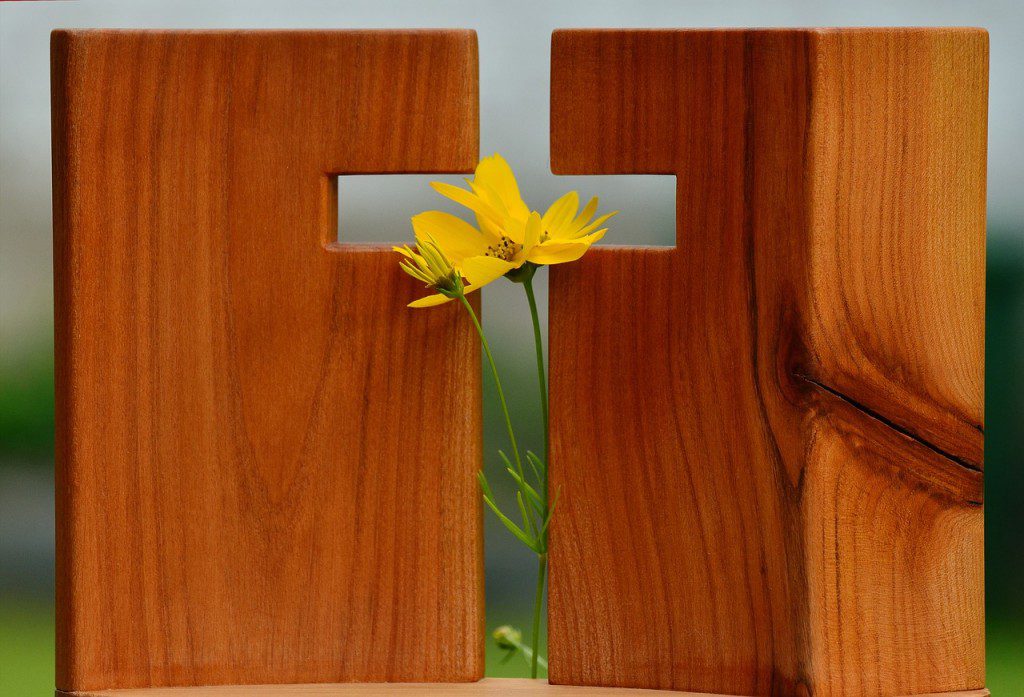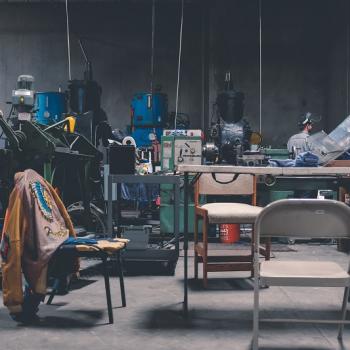
I’ve never met Morgan Guyton. The closest I’ve come is that he spent a couple hours in my friend Brandon Harnish’s living room while on a book tour. However, I love his blog, Mercy Not Sacrifice, and I’ve enjoyed interacting with him on Facebook. Somehow the fact that my husband and I knew him on Facebook got us a free book this past spring, which my husband has been much more timely in reviewing than I have, here and here. (Those of you that know me and also know my husband: this is as likely as the Cubs winning the World Series. Well, wait…)
Though I think we believe many of the same things, Morgan and I come at them from different backgrounds. He grew up Southern Baptist, but after a time spent wrestling with addiction and a dark night of the soul came back into the fullness of faith through the unconditional love of a largely queer United Methodist church in Ohio. (He is now a ordained United Methodist pastor and director of the NOLA Wesley Foundation at Loyola and Tulane.) Freely and repeatedly in the book he describes himself as an evangelical.
I was raised as a mainliner (a United Methodist, in fact) by fairly conservative parents. We sometimes called ourselves “evangelical” and we identified with the holiness strain of Methodism (my grandfather was the third president of Asbury Theological Seminary), but when I went to college I encountered cultural evangelicalism for the first time and found it a totally foreign animal. I generally describe myself as “doctrinally orthodox but not culturally evangelical.”
The 12 antidotes to toxic Christianity that Morgan describes in his book were, largely, the values preached by the mainline churches I attended in my childhood (with the exception of “breath, not meat,” Morgan’s re-imagining of the words “spirit” and “flesh” to help us see other humans as “gifts from God, as sacraments of God’s beauty, whose infinite mystery we can adore without the need to make them useful to our consumption.” Christianity in general has been getting that one wrong for a while, as my friend Beth Felker Jones can tell you.)
Methodism in the 1970s of my childhood was everything Morgan wants in a church: a hotbed of social justice activism, poetic interpretations of Scripture, engagement with the culture, radically equalizing modes of worship and organization, and Jesus as one’s fishing buddy. (OK, maybe Morgan doesn’t want that last thing!) It looked, I realize with the hindsight of history, very little like what the UMC appears to me from the outside now in 2016: a revivalistic conglomeration of high-tech megachurches where everybody is yelling at each other. (I could write a whole other post on which aspects of which vision of Methodism are closer to its original 18th and early 19th-century heritage. Maybe someday I will.)
I imbibed some of that freewheeling ethos, for sure. As a child, I loved having things like balloons and clowns in worship, even though I now understand they were the precursors of all those song lyrics on slides and laser light shows that mystify me in modern contemporary worship. (I even did liturgical dance with a balloon to accompany one of my mother’s choir anthems. The song began “Reds and greens and whites and blues, all these colors I give to you; and a million balloons to float in the sky and a million stars to shine in your eyes.” I can’t find it on the interwebs. Help me out if you know it.) I took in, and have largely kept, the 1970s distrust of all hierarchical organization; the belief (how ever poorly I live it out in practice) that everybody really ought to be a pacifist and ready to lie down in front of the nukes if possible; and the knowledge that all of religion was at its core, as Morgan describes the Bible, “poetry, not math”–shrouded in mystery, not produced from argumentation.
But I also found aspects of that ethos somewhat thin as I grew older. I wanted more to hang onto than balloons and sanctuaries arranged in the round. For a while, I tried to solve the problem by becoming incredibly legalistic. (I am an INTJ on the Myers-Briggs. Legalism is our middle name.) In all sorts of ways, this did not work. Then I tried to solve it by becoming what passes for incredibly secular if you’re a nice Midwestern Methodist. (I went to library school.) That didn’t work either.
In the end, what saved me was what G. K. Chesterton once said saved him: “marriage and a creed.” I married someone who is an expert at holding my feet to the intellectual fire. We produced small human beings that I would walk through flood and destruction to protect. I woke up one morning and realized I really still believed in Jesus. (Ironically for someone who had spent 10 years trying to become a Methodist pastor and failing, this discovery ended up making me an Episcopal priest.) I read John Chrysostom’s Easter sermon and realized that I hadn’t heard the whole story; the penal substitutionary Jesus of Morgan’s childhood who placated a vengeful father and the moral influence theory Jesus of my childhood who gave us a nice model to live up to had nothing on the Jesus of Christus Victor theology who tramples down death and hell and brings up his struggling, gasping, surprised people into the light of day, saved by a love that is both as unconditionally embracing as wind and as powerfully awesome as fire.
So.
I agree with my husband about How Jesus Saves the World From Us. He said in his review,
If you read one “progressive Christianity” book, read this one. If you hate “progressive Christianity” books, read this one. If you’ve read a bunch of them and are tired of them, read this one. And if you have read them and are happy that they have delivered you from toxic Christianity already and you aren’t like those nasty conservatives any more–then by all means read this one.
As my husband goes on to say, Morgan preaches the Gospel here. And I think it is a gospel that is profoundly freeing for a number of people, judging from the response that the book has gotten. It certainly confirmed the ways in which my own childhood was freeing for me. Lived out as authentically as the book describes and as I’ve seen Morgan model, these 12 antidotes are incredibly important ways of kingdom living. But I’ve also seen what happens when they are taken to the other extreme, when Christianity really becomes nothing more than a bunch of nice people sitting in a non-hierarchical circle writing psychological calls to worship about social justice.
That’s not the Christianity that saved and formed Morgan, and it’s not the Christianity that saved and formed me. But I think the next book I want him to write, now that he has done such a beautiful job explaining how God loves us with an embrace as unconditional as wind, is the book that tells us what to do when we find out God also loves us with an embrace as powerfully transforming as fire.













